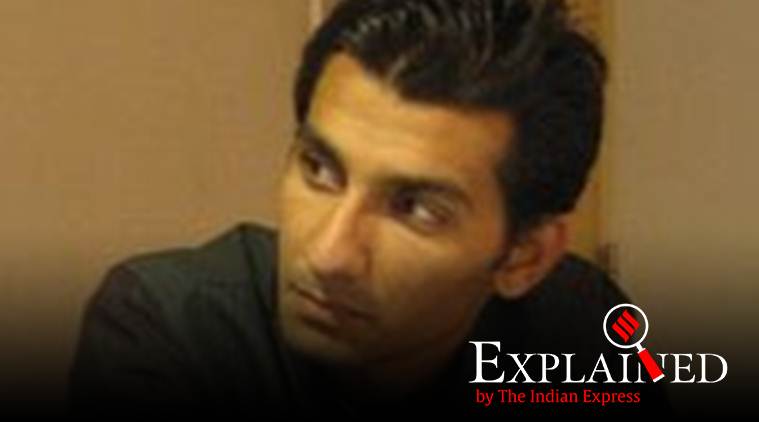Explained: Who is Junaid Hafeez, sentenced to death for blasphemy in Pakistan
Hafeez graduated in English literature from Bahauddin Zakariya University, before going to the US on a Fulbright scholarship. After returning from the US, he started teaching at BZU.
 Hafeez has remained in solitary confinement during the six years of trial. (Photo: Twitter/@nighatdad)
Hafeez has remained in solitary confinement during the six years of trial. (Photo: Twitter/@nighatdad)
On Saturday, a court in Pakistan sentenced Junaid Hafeez, a former university lecturer, to death on blasphemy charges, Dawn reported.
Hafeez (33) was a visiting lecturer at Multan’s Bahauddin Zakariya University (BZU) until 2013, when he was arrested by police after being accused of blasphemy.
He has remained in solitary confinement during the six years of trial, in which at least seven judges were transferred.
Who is Junaid Hafeez, and what were the charges against him?
According to the Dawn report, Hafeez graduated in English literature from BZU, before going to the US on a Fulbright scholarship.
After returning from the US with a Master’s degree, Hafeez started working as a lecturer at the literature department at BZU. At the faculty, Hafeez often invited women’s rights activists for the guest lectures that he would organise.
At one such function, Hafeez invited Qaisra Shahraz, an acclaimed television writer. It was at this lecture that Hafeez and Shahraz were accused of passing blasphemous remarks. Subsequently, Hafeez was imprisoned, while Shirin Zubair, the head of the literature department, had to flee Pakistan.
His trial and conviction for blasphemy
After Hafeez’s arrest, the trial proceedings were shifted to Multan Central Jail for security reasons in April 2014. Hafeez’s lawyer was shot dead in May.
Fifteen witnesses testified in the case, in which prosecutors maintained that anti-religious material had been retrieved from Hafeez’s laptop after his arrest.
In 2019, Hafeez’s parents accused the prosecution of using delaying tactics, and appealed to the then Chief Justice of Pakistan, Asif Saeed Khosa, to look into what they called a “fabricated case”. They also cited difficulties in finding legal counsel for Hafeez.
On Saturday, the Multan court found Hafeez guilty under the nation’s blasphemy law, sentencing him to death and imposing a fine of 5 lakh Pakistani rupees.
On a separate charge “Defiling, etc., of the Holy Qur’an”, Hafeez was sentenced to life imprisonment with 10 years’ rigorous imprisonment and a fine of 1 lakh Pakistani rupees.
Blasphemy laws in Pakistan
Section 295-C of the Pakistan Penal Code provides punishment for blasphemy, and was enacted during the military rule of General Zia-ul-Haq in 1986. The Section reads:
“Use of derogatory remarks, etc., in respect of the Holy Prophet:
Whoever by words, either spoken or written, or by visible representation or by any imputation, innuendo, or insinuation, directly or indirectly, defiles the sacred name of the Holy Prophet Muhammad (peace be upon him) shall be punished with death, or imprisonment for life, and shall also be liable to fine.”
The other charge on which Hafeez is convicted, “Defiling, etc., of the Holy Qur’an”, is Section 295-B, which reads:
“Whoever wilfully defiles, damages or desecrates a copy of the Holy Qur’an or of an extract therefrom or uses it in any derogatory manner or for any unlawful purpose shall be punishable with imprisonment for life.”
In 2010, Asia Bibi, a Pakistani Christian woman, was sentenced to death for blasphemy but was acquitted by the country’s Supreme Court in 2018 for lack of evidence. She was allowed to leave for Canada in May this year.
So far, Pakistan has not executed any person for blasphemy. However, several extra-judicial killings have been reported. In 2017, Mashal Khan, a university student from the Khyber-Pakhtunkhwa province, was lynched after he was accused of blasphemy on social media.



- 01
- 02
- 03
- 04
- 05



































